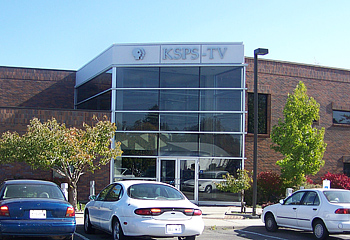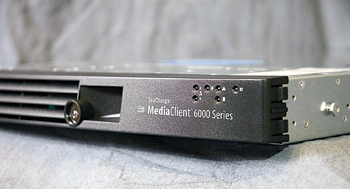SeaChange Tackles Big Task at KSPS-TV
SPOKANE, WASH.
KSPS-TV maintains a unique position in the world of television broadcasting—we are a PBS member station serving the 80th DMA, one which encompasses a vast area reaching as far as northwestern Montana. Our off-air signal also serves Alberta, Canada, and a longstanding arrangement with Shaw Broadcast Services makes us the primary PBS feed for cable and DTH viewers across Canada. If one were to count our entire North American audience, KSPS-TV serves the equivalent of a top 25 market.
MULTIPLE REQUIREMENTS

The KSPS-TV facility in Spokane, Wash. In addition to our main HD feed, we also originate a second HD channel for KTNW in Richland, Wash., along with an SD feed for Washington State University's television operation, KWSU-TV. We also playout five local cable channels and provide fiber service to outlying cable systems for the local Spokane network affiliates.
We've gone to great lengths to build a system that reliably ingests, plays out and manages the tremendous amount of content passing through our facility at any given time. That system is constructed around SeaChange's Broadcast MediaLibrary/ MediaClient (BML/MCL) server and codec platform.
Over time, what was originally a modest system has evolved into a five-server node 35 TB play-to-air cluster with four SD inputs, eight SD outputs, one HD input and two SD/HD simulcast outputs. Additionally, we have 48 TB of nearline storage which holds approximately 10,000 hours of content encoded at 8 Mbps.
Choosing a SeaChange platform to play out SD and subsequently support HD came down to a couple of deciding factors. First, it gave us a clear and easy path for expanding the system, and specifically for adding HD capability by simply activating software already residing in its codecs. We already knew about its reliability from past experience, in particular the redundancy afforded by SeaChange's exclusive RAID-squared technology and a design that negates the need to mirror resources.

SeaChange's MediaClient 6000 series server However, ensuring that we're always on air is just part of the battle. Having the proper content at the right time is handled with our Masstech asset management and Harris Louth automation systems. Our Masstech system is not only sending content to air, but also pushing segments onto our Web site for online viewing.
We give much credit to the support teams from SeaChange, Masstech and Harris for helping us build a seamless system. With any type of integration, there are going to be glitches. Ours has been only minor—primarily related to the interpretation of commands and requests between the different systems—and all of the vendors worked extremely well with us and each other to resolve any small issues that did arise.
LOOKING TO THE FUTURE
KSPS-TV is always preparing for advances in technology and the way in which our viewers consume content. We welcome the introduction of flash memory into the play-to-air environment and have monitored closely what SeaChange has brought to the table in its newest flash servers. We're certain that the next time we purchase servers they will be flash memory-based.
We're also keenly interested in mobile television and have already begun addressing related issues. We have plans to redesign our transmission system with a new transmitter and antenna that will optimize our coverage area and antenna characteristics to address mobile audiences. We already know that we have a play-to-air platform in place that can reliably serve those viewers when the time comes.
Bob Wyatt is director of engineering at Spokane's KSPS-TV. He may be contacted at bobw@spokaneschools.org.
For additional information, contact SeaChange International at 978-897-0100 or visit www.schange.com.
Get the TV Tech Newsletter
The professional video industry's #1 source for news, trends and product and tech information. Sign up below.
